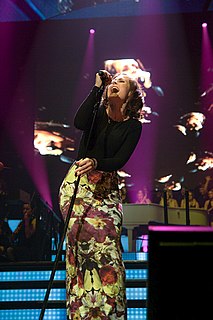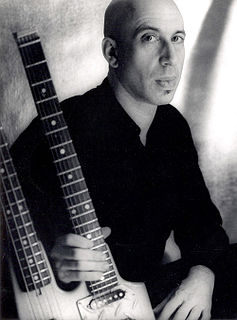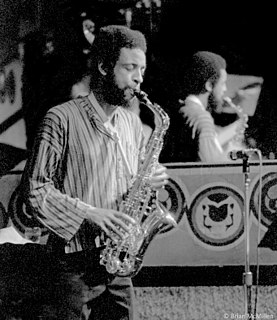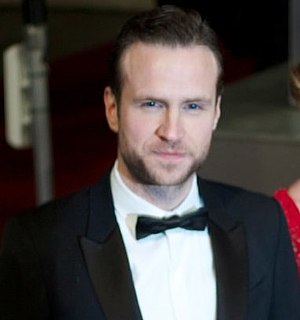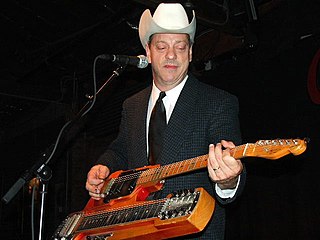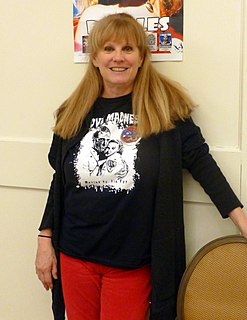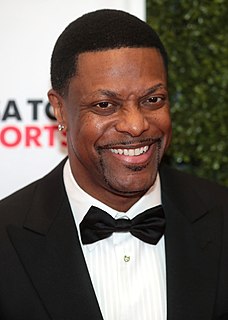Top 386 Improvisation Quotes & Sayings - Page 7
Explore popular Improvisation quotes.
Last updated on November 10, 2024.
Music and writing do fold together in the sense that you have to have a certain level of skill in order to execute your ideas and you need a medium. The idea of improvisation is one that many writers fall into, and I improvise a great deal when I'm writing, but there's a structural framework that I'm working around, and that takes more time than the actual writing. Once the characters get to yapping and talking, they'll move from one room to the next, and I just have to make sure that the house is built. That's really hard, that's the kind of thing that sits with you all day long.
Business today is all about improvisation, which is the essence of jazz. Perhaps in the past we could just follow the operating manual and do what we were told, but today the world is too complex and fast. Today it's all about real-time innovation and creativity. Individuals may get hired based on their resumes, but they'll get promoted and reach their dreams based on their ability to create. In that context, being a jazz musician was the best MBA I could have ever received.
It's kind of like being a writer in the sense that you always hear other writers say, 'Well, the best way to start writing is to just start writing.' The same goes for improvisation. You want to start improvising, just start playing notes. And the more you do that, the more comfortable - or not comfortable - but I guess how you're able to adapt to situations. You become more familiar with your instrument. As soon as you have a musical thought, you can go ahead and add to that musical thought and know your way around.
We would do improvisation together. And that in a way, had almost a "student-film side" where we'd be sitting there with Robert Downey and Jon Favreau and we're playing around, we're jamming around and we read those pages and in next couple of days that's what we do, so it was a good experience. Kind of frightening at first because you didn't quite know how it was going to work out, but they had some very talented people there so it worked out well.
It was amazing how much their [Seth Rogen, Evan Goldberg, Shauna Robertson] process seemed familiar to me, translating that into the work that I had done and giving actors a lot of freedom and doing a lot of improvisation and a total respect and collaboration with all the department heads and all the crews, and just really making it an enjoyable industry rather than just clocking in and doing a job which a lot of movies are.
Within a capitalist corporation, someone says, "Lend me a wrench," and someone asks, "Yeah, what do I get?" You assume that the idea of each according to his or her abilities, each according to his or her needs - in solving a problem - is actually the only thing that works. And in situations of disaster, there are often communistic notions of improvisation, where you basically exchange hierarchies and all of a sudden all those things that are luxuries that you can't afford, you have them in an emergency.
I'm proud of my ability to understand what somebody else is trying to do and help them achieve it, because part of the aesthetic of improvisation is service. You never say no. Serve the servant, follow the follower. And that's very valuable in your life, as well as very valuable in your actor's work. I'm damn proud of my ability to help other people achieve their ideas.
I moved to Chicago in the early 1990s and I studied improvisation there. I learned some rules that I try to apply still today: Listen. Say yes. Live in the moment. Make sure you play with people who have your back. Make big choices early and often. Don't start a scene where two people are talking about jumping out of a plane. Start the scene having already jumped. If you're scared, look into your partner's eyes — you will feel better.
With the exceptional talent that is Guy Sigsworth as producer and collaborator, we have recorded a collection of original songs that sees me moving away from a generic line up and back into the world of a programmer. Born of reconstructed improvisation I like to think of it as Prog-Pop, but I also like to think of big dogs as small horses. So don’t hang on to that thought long. Unless, of course, you think it astute of me in which case I am right
Thorny compositions that sound as if female teen punkers the Shaggs received doctorates in the music of 12-tone composer Alban Berg, and then rewrote their Philosophy of the World.... Carefully notated structures and interplay morph effortlessly into free improvisation that is intelligent and expressive, but never self-indulgent. Also featuring intense lyrics sung with their clear and melodic voices, the two women make transcendent chamber music outside of any genre.
People have their own interests and they want to play a certain kind of music. People want to play in orchestras. They want to play on Broadway. Those that want to play traditional jazz and have no interests in the ideas of improvisation. So in spit of the fact that there are fifty violin players, you might only narrow it down to ten and within those ten, there might only be three who have the right kind of background and credentials to deal with what you need to deal with. Everybody's got their own special thing that they are after and a lot of times you don't have time to be training people.
It's very interesting to read why Cornelius Cardew became disenchanted with academic avant-garde music. He wanted to reach as many people as possible and change their consciousness. He wanted to reach the "working classes" in England. The kind of music he was making was very much from the academy, even though it had a lot in common with things like free jazz and improvisation, and he felt that it was the music of the elite, and that he wasn't really speaking to the people.
You do stuff that gets a reaction and you think 'that's a winner' and then it never sees the light of day. But the thing with improvisation is that 90% of what you come up with won't be used and for good reason. But you keep going for the occasional gem that you might come up with. You do a scene and a lot of the time. We wouldn't cut. So, you come up with something that might be funny and then you go, 'alright, what else'? So, you kind of throw stuff against the wall and see what happens. But you've got to be prepared to make a fool of yourself.
I honestly would tell anyone young to start looking at stories and learning story, because I think that’s the next step after people go, ‘OK, I’ve had enough of that improvisation, I’ve had enough of those short comedy bits. Tell me a story, tell me a more complex story, something that lasts and maybe has a little more meaning to it.’ Don’t ever look at what’s happening now; look at what’s coming next.
Hendrix was back there with a few of the others who were like my training wheels ... hearing him as a teenager taught me to look at the guitar in a different way - and how to tap into that thing inside of me that was already leaning toward improvisation. You learn other players' licks at first; then you take off the training wheels and start using the licks as building blocks to make your own thing. That's how influences work. somewhere in whatever I do, there's a little bit of Hendrix - plus about a hundred others
I teach a graduate seminar called "Theorizing Improvisation" that is pretty interdisciplinary, but really makes students deal with black studies seriously. A lot of authors of color, a lot of women of color - those become central to the intellectual trajectory. It considers music, but it also considers areas of thought that might seem unrelated to music. That's partly because we're expanding the notion of what music is beyond objects, beyond scores, beyond things.
I used to think that running an organization was equivalent to conducting a symphony orchestra. But I don't think that's quite it; it's more like jazz. There is more improvisation. Someone once wrote that the sound of surprise is jazz, and if there's any one thing that we must try to get used to in this world, it's surprise and the unexpected. Truly, we are living in world where the only thing that's constant is change.
With Halloween, the director was this genius wonder boy who was the writer, director, producer, along with his girlfriend. They were this team, and they were making this small movie, and it was just completely different, but it was really inspiring and a lot of fun, and also allowed me to do a lot of improvisation, because they just depended on the girls to expand their parts to bring some real life, being girls ourselves, to the characters.
First, if it is true that a spatial order organizes an ensemble of possibilities (e.g., by a place in which one can move) and interdictions (e.g., by a wall that prevents one from going further), than the walked actualizes some of these possibilities. In that way, he makes them exist as well as emerge. But he also moves them about and he invents others, since the crossing, drifting away, or improvisation of walking privilege, transform, or abandon spatial elements.
I think in theater it demands that you say the same words every night and make it feel fresh and new. Improv demands that you be operating at the highest level of your creativity intelligence. So these two skills are both very important but I've seen people who are very skilled at one area struggle with the other. Either improvisers feel constrained by having to say the same thing over and over again or people who are really good at doing scripted work feel intimidated and exposed doing improvisation.
When we got to the part where we had to improvise an argument in a poetic language, I got cold feet. "I can't do this," I said. "I don't know what to say." "Say anything," he said. "You can't make a mistake when you improvise." "What if I mess it up? What if I screw up the rhythm?" "You can't," he said. "It's like drumming. If you miss a beat, you create another." In this simple exchange, Sam taught me the secret of improvisation, one that I have accessed my whole life.
I've been fortunate to work with good directors who understand improvisation and understand the way comedians work. Luke Basan let me do my thing like do what you feel and take the character to another level. Quentin Tarrantino was more of an acting coach. He can teach you beats and then hell say go with it but give this feeling. So I've been fortunate to work with good, seasoned directors.
It was almost noon when the plane touched down at the Triad airport on the outskirts of Greensboro. There was a hire car waiting for me; I waved my notepad at the dashboard to transmit my profile, then waited as the seating and controls rearranged themselves slightly, piezoelectric actuators humming. As I started to reverse out of the parking bay, the stereo began a soothing improvisation, flashing up a deadpan title: Music for Leaving Airports 11 June 2008.
Improvisation in general is good, and improvising material into themes, turning the material into something codified and repeatable, taught me scenic structure and dramatic gambits that work and things that are appealing both as a performer and an audience member, like you know, what does "want" really mean in a scene, and how do you achieve your want, and how is that expressed, and how do you achieve closure? Those are all things that I learned performing at the cabaret after just doing the same scenes over and over and over again over the years, with my own ability to change.
There is indeed a level of improvisation where we can distort and shuffle the music patterns, samples, and loops in each phase of the show within fixed cue points, but at the same time there is a constant result that we are trying to achieve each night while performing and operating our system - quite similar in spirit to a broadway show for example: If you go see a musical two nights in a row, the performances are different yet similar.








